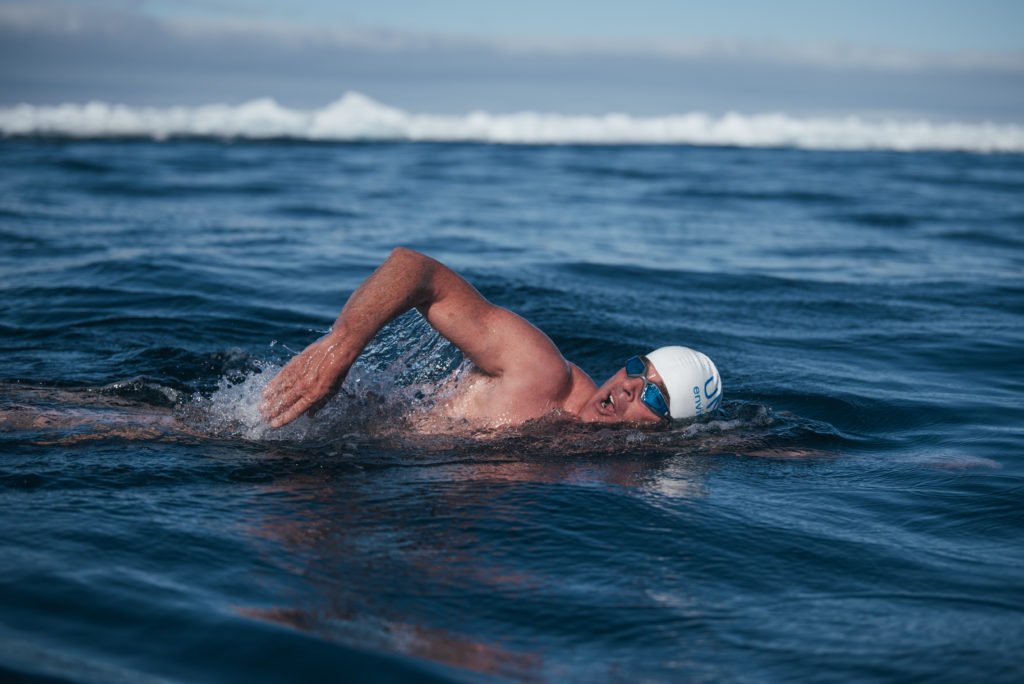A Defining Moment: Will Norway Choose Peace or Greed?
Norway seems intent on exacerbating a global crisis by opening up drilling for oil and gas along the edge of the Arctic icepacks.
I have always seen Norway as a moral leader, with a long tradition of helping people in need. From the work of Fridtjof Nansen repatriating refugees, to Norway’s help in ending Apartheid, you will find Norwegian peace negotiators wherever there is conflict around the world.
My introduction to Norway happened long before I swam in its beautiful waters. It was when I was a young boy, listening to my father’s cousin, Carey Heydenrych, tell of his attempted escape from a POW camp in WWII. The epic tale would later be made into the blockbuster “The Great Escape” starring Steve McQueen.
Carey was born in 1922. When he left school he apprenticed as a mining engineer in Johannesburg. There was no conscription in South Africa, and even though he was of part German descent, when the war broke out he volunteered to join the Royal Air Force and became a reconnaissance pilot.
Digging deep
Carey was stationed in Scotland from where he would undertake numerous missions along the Norwegian coast, looking for German warships. On one such flight, he spotted three enemy ships near Kristiansund and launched an attack. He was shot down, captured and imprisoned in Stalag Luft III camp – from whence the Great Escape would happen.
The POWs’ escape involved digging three different tunnels – Tom, Dick and Harry. Carey was one of the men digging Harry.
When the guards discovered an escape was underway, they sounded an alarm. Carey heard gunfire above ground and fortunately managed to crawl back into the camp. Of the escapees, only three managed to get to freedom. The remainder were rounded up. The Gestapo executed 50 of them, including three Norwegian pilots.
Moral compass
From the first time I heard his story, I admired Carey for his tenacity. He never gave up, and that helped him survive the war. But I also admired his moral compass. When it came to hard decisions, he chose to stand for what was right.
Besides his wartime tales, Carey enthralled me with the beauty of the Norwegian coastline. He described snow-capped mountains, majestic fjords and immense glaciers. I couldn’t wait to see them for myself.
Home from home
Norway became my second home in my early days as a cold-water swimmer. I spent many summers in the Norwegian Arctic, and my love for its people and the environment blossomed there. I’ve had many Norwegians in my support team. When I swam across the North Pole in 2007 to highlight the melting of the Arctic sea ice, I invited Roald Amundsen’s grandnephew to ski beside me.
In 2017 I returned to the Norwegian Arctic to see how the region was changing due to the climate crisis. I was shocked by what I saw.
When I first swam outside Longyearbyen in the summer the sea temperature was 3°C. A decade later it was 10°C. I sailed up to the Monaco and Magdalene Glaciers, and could hardly recognise them because they had retreated so much. You don’t have to be a scientist to realise that if you have warm water flowing into the Arctic, that ice will melt.
Global gets local
The impacts of this melting needs to be spelt out. At the most basic level, the climate crisis will affect our supply of food and cause water shortages. It will make parts of the world uninhabitable. It will bring storms and floods and mass migrations. The refugee crises will worsen with the likelihood of increased conflict over limited resources.
Some nations will be more vulnerable than others, either because of their geographic location or their inability to adapt. These include low-lying islands, cities like New York and London, and countries like South Africa and Bangladesh.
No one is safe from climate change. It is an existential threat to life on Earth. Which is why I struggle to understand why anyone would want to open up drilling for oil and gas along the edge of the Arctic ice packs, an act that can only accelerate climate change. How can a country of conscience, a country that curates the Nobel Peace Prize, allow this to happen?
Crisis of conscience
Norway has done incredible work investing in and adopting renewable energy. They have shown that, just because a country was built on oil and gas, doesn’t mean it has to continue that way. There is wisdom in knowing when to change.
Exploring for further fossil fuels in one of the most important wilderness areas on the planet, and in the face of runaway climate change, is both reckless and morally wrong.
Climate change is the defining issue of our generation. Not all ethical issues are black and white, but this one is clear-cut.
There are no half measures: you either drill or you don’t. You are either part of the solution, or you are the problem.
As we celebrate VE Day, we remember that young men and women came from all over the globe to help defend Norway. Like my father’s cousin, they did not have to. But they heeded its plea for help in a time of need.
Now Norway seems intent on exacerbating a global crisis through which vulnerable nations, which have done little to cause climate change, will suffer very serious consequences. If Norway proceeds, history will judge it harshly.
The bottom line is that there can be no Great Escape from runaway climate change – unless we turn away from fossil fuels now.
Lewis Pugh is an endurance swimmer and the UN Patron of the Oceans.


